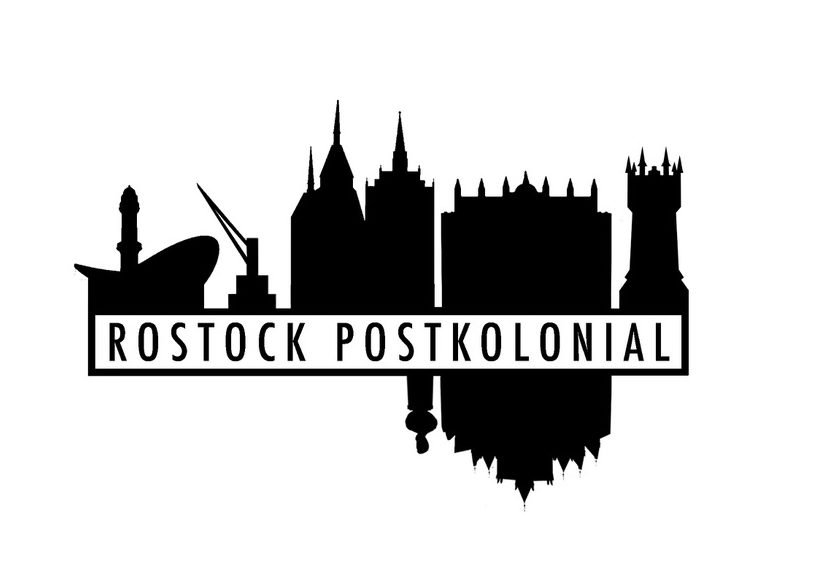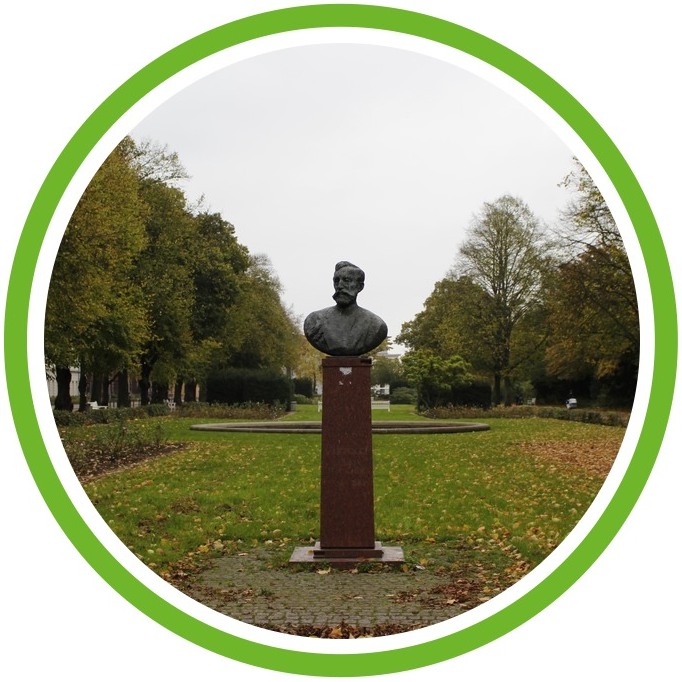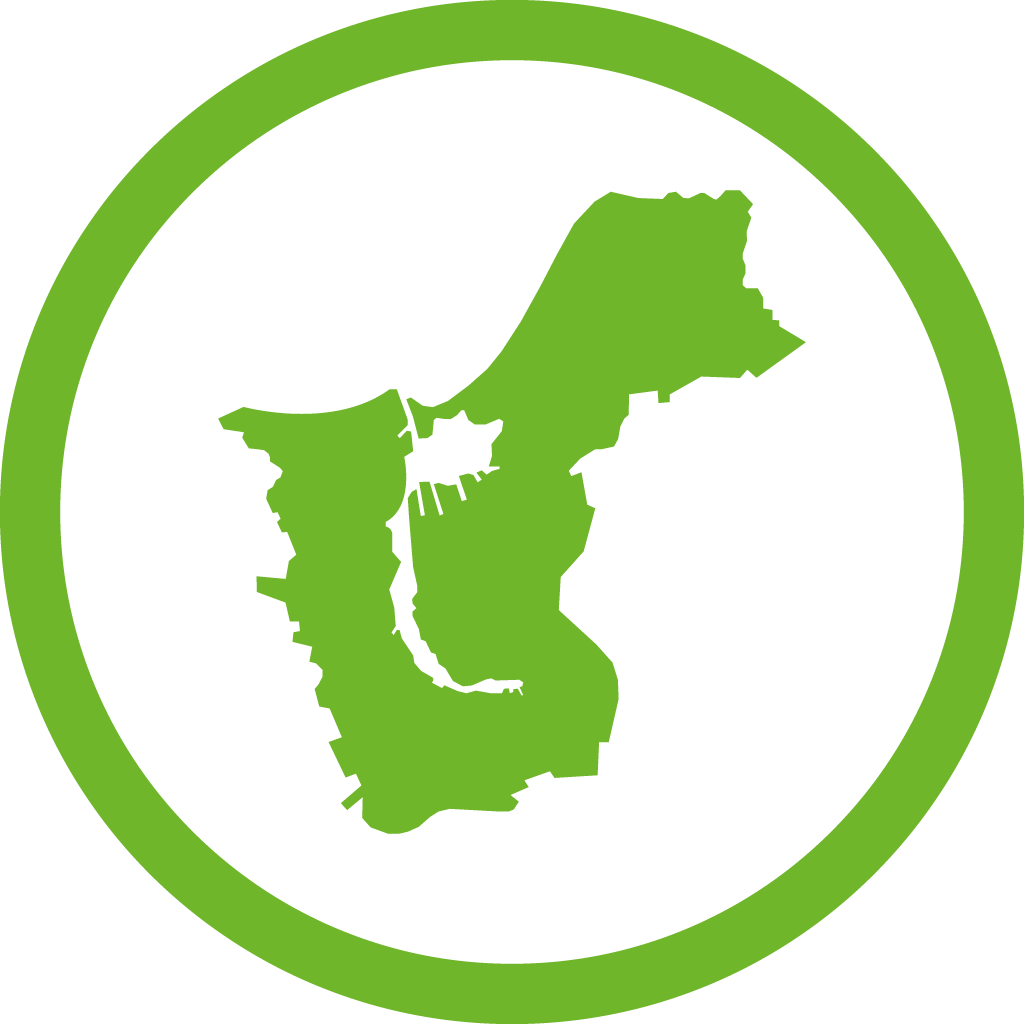Not in the mood for reading?
You can listen comfortably to all the information here and while exploring the region.
Monuments and street names in colonial context
Street names and monuments are part of our daily perception. They create references to a local history and they show who or what the role model for the city is. And because they are showing us on whom we could or should orientate ourselves, so shouldn’t we question critically who these honored persons are and for what they stand?
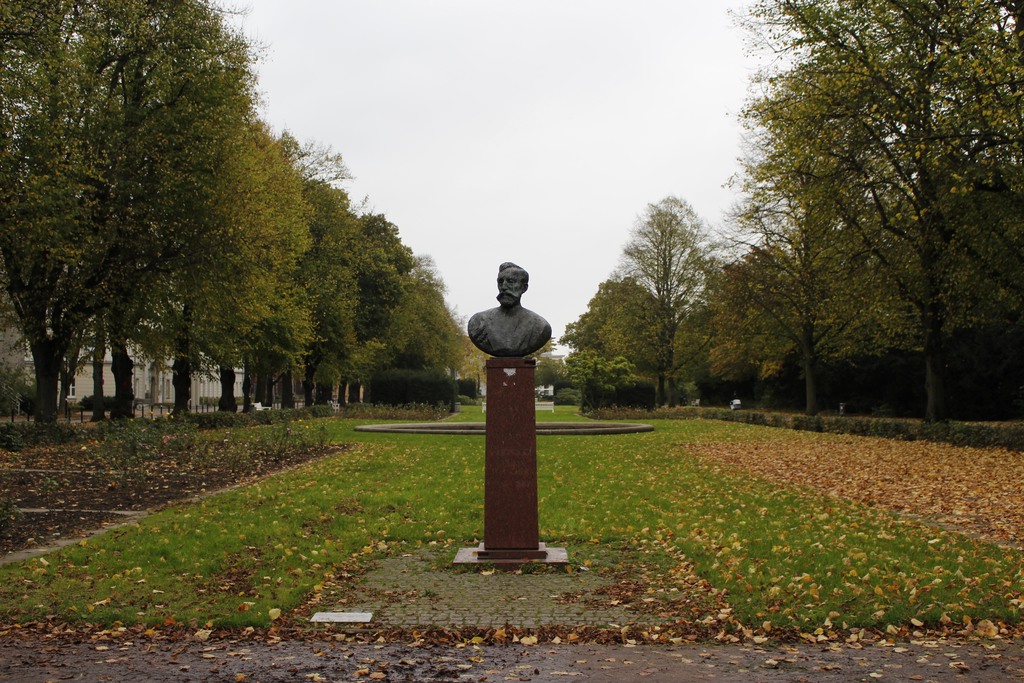
The monument of Paul Pogge in the ‘Rosengarten’
In 1885 the Afrikanische Gesellschaft (“African Society”) already set up a monument in front of the house of Paul Pogge in his honor in Rostock, which considered him the most succesful traveler. The monument was removed and destroyed in 1945. In 1995, a new Pogge monument was donated by the Volksbank of Rostock. It is located in the Rosengarten and was created by the known sculptor Jo Jastram. Underneath the bust you can find the designation of him as an Afrikaforscher (“explorer of Africa”) and his biographical information.
Who was Paul Pogge?
Paul Pogge (1838-1884) was the son of a landowner from Mecklenburg-Western Pomerania, who undertook two expeditions on behalf of the African Society to Central and Western Africa. In his first expedition (1874-1876) he got to the Nation of Lunda under the ruler Muata Jamwo, in the south of today’s Democratic Republic of Congo and stayed there for four months. As this was considered a major success for Pogge, Bismarck arranged additional generous payments to the African Society for research purposes. Around 140 black carriers were a part of this expedition, from which Pogge brought back basic commodities and articles of virtu, zoological and botanic objects, and 18 skulls which he transferred to the Prussian Museums in Berlin.
The second expedition led by him was from 1880 and was the first accompanied by lieutenant Hermann von Wissmann. The objective was to land at the West coast and to advance as far as possible into Congo. In addition to that, Pogge wanted to build a station for research purposes. He wanted to prove that it is possible to live in Central Africa as a white man without supplies from the coast. For this he used plant cultivation and tried keeping small animals. Since the political climate changed during the expedition and Germany rose to a colonial power, the interest shifted from the exploration of Africa to the exploration of the german colonies. While Pogge stayed back and hoped for financial resources from Berlin for two years, his healthy steadily deteriorated. He died 1884 on his way back to the coast in the portuguese colony of Angola.
How are Pogge’s activities to be judged?
It is not easy to find critical voices of the lifework of Paul Pogge. Some publications and initiatives praise him and reject all criticism. “In Verkennung seiner Verdienste wurde er als Vorbereiter des deutschen Kolonialismus diffamiert“ (“In misjudgement of his services he was defamed as preparer of the german colonialism”), was written by the historical society, which remembers him and his relatives in his birth house to this day. This society describes him as successful and unbiased in his field studies. If this assessment can be upheld, it has to be proven in a critical investigation. This can’t be left out in his publications either. What exactly were his merits? Can – what was written down at that time about Africa – still be called research? And did these expeditions of the so-called explorers of Africa pave the way for what was to come with the German colonies? Many authors want to leave it in their investigations at a point, where they describe what he is saying, which is even sometimes with the same wording. One seems hardly aware, that this kind of historiography could put colonialism into a heroic spotlight and that its aura could nowadays still be romanticized.
On the first page in the published diary of Pogge about his first expedition – “In the kingdom of the Muata Jamwo“ – is found the following quote (trigger warning!):
“Was den Charakter des N**** in Angola sowohl, als im übrigen Afrika betrifft, so kann der unparteiische Europäer denselben im Allgemeinen nur tadeln. Der N**** ist feige, faul, unzuverlässig, lügenhaft, liederlich, leichtsinnig, schlau und abergläubisch; er lügt, stiehlt und betrügt, wo er nur kann. Er lebt nur für die Gegenwart und denkt nicht an die Zukunft; er fühlt sich nur da wohl, wo er zu leben hat, kennt keinen Patriotismus, kein Heimweh, obwohl man zugestehen muss, dass die Bande der Verwandtschaft von ihm sehr respectiert werden, und die Verwandten in der Not fest zu einander halten. ”
Pogge, Im Reiche des Muata Jamwo, 6.
“On the nature of the n***** in Angola as well as in the rest of Africa, so can the unbiased european only reprimand them. The n***** is cowardly, lazy, unreliable, insincere, lewd, careless, smart and superstitious, he is lying and stealing and betraying wherever he can. He is only living in the present and never looks ahead. He only feels well, where he lives. He doesn’t know any patriotism and homesickness. But you have to admit that the ties of relationships are very respected under them, where the relatives help eachother in need. ” (Pogge, Im Reiche des Muata Jamwo, 6.)
Europeans were/are living in fiction to always judge neutrally over others. They thought of their own culture and the history of the nation states as rational, foresighted and superior.
Street names with colonial heritage in Rostock
The history of oringins of street names is very interesting. Who actually decides how the streets shall be called? This would be normally the citizenry and the city. Are there such things as moral principles by which the street names are called or renamed? Yes! They exist. In the statutes of the designation of street names of the Hanseatic City Rostock is it written that: “The designation is inadmissable when the persons, aims, actions and values contradict with the constitution”.
Contrary to other German cities (eventually stronger in west german cities) is it at first sight noticable in Rostock that not many street names reference colonialism. One reason may be the socialistic past of the hanseatic city.
The Kolumbusring in Rostock is named after the colonial conqueror Christopher Columbus (1451 – 1506) and leads right through Schmarl, which is a district of Rostock. The bordering district is Evershagen where many streets are named after authors. One of them is the Carl-von-Linné-Straße. The Swede Linné (1707-1758) is famous for his designation system of minerals, plants and animals, which is still used. In 2016, a commission of the city of Freiburg advised the city to install additional information under the Carl-von-Linné street signs. The wording is: “Swedish natural scientist and founder of the biological classification, pioneer of the gender hierarchy and human catigorization explained by biological causes.” Linné devided human beings in four human races on the basis of physical characteristics and substantiated them with higher or lower characteristics.
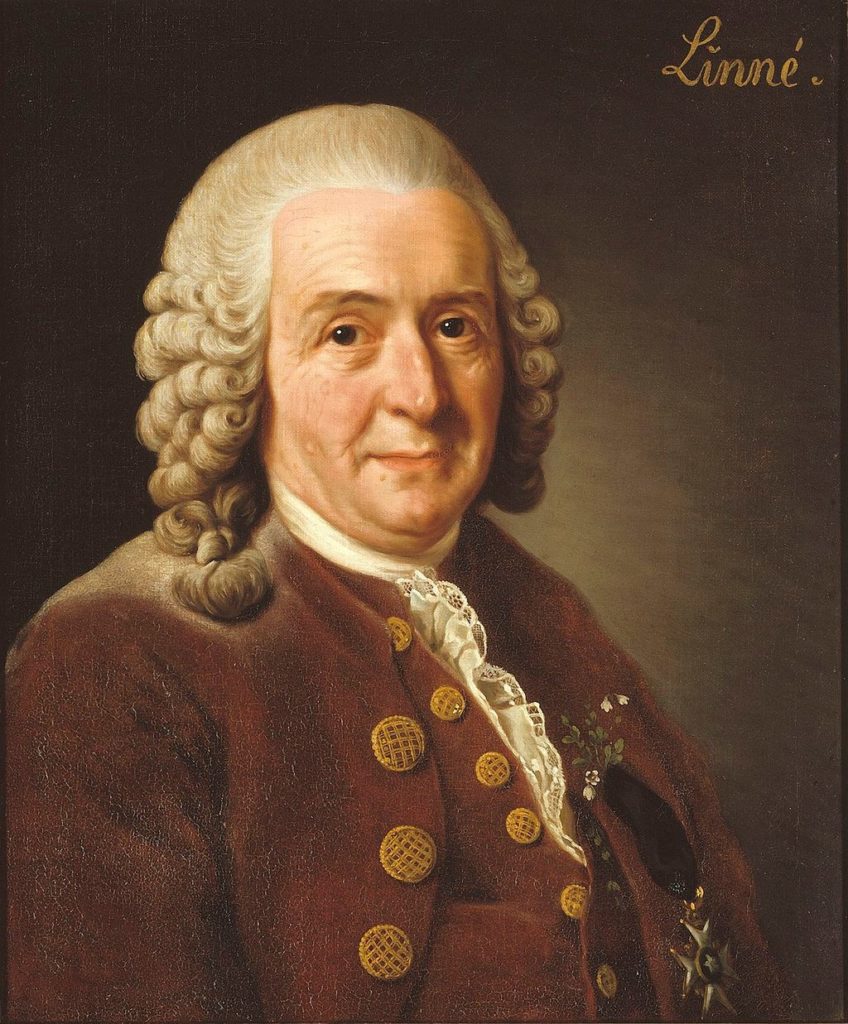
Konrad Adenauer was interestingly enough the vice president of the German colonial society from 1931 to 1933 and the square in front of the central station is named after him. The physician Robert Koch (1843-1910) has a street named after him in the Südstadt (another district in Rostock). He was named Tropenforscher, which means the researcher of the tropes. His actions are controversial, but we will learn more about him at the stations “Colonialism” and “Medicine”.
Who do we want to honor?
Postcolonial thoughts about urban culture of memory
Should monuments with a problematic background be dismantled? Should arguments be happening on memorial plaques? Should monuments be set up which remember african personalities, who put up resistance against the European colonialism?
There are a lot of civic initiatives which stand for renaming street signs to resistance fighters from colonized countries, when colonial rulers are honored there, for example in Berlin, Hamburg and Freiburg.
You can find out about these initiatives, support them or maybe consider being part of our initiative Rostock Postkolonial.
Sources and for reading
- Art. „Schmarl“ in: Wikipedia, Die freie Enzyklopädie: https://de.wikipedia.org/w/index.php?title=SchmarlHYPERLINK “https://de.wikipedia.org/w/index.php?title=Schmarl&oldid=167027517″&HYPERLINK “https://de.wikipedia.org/w/index.php?title=Schmarl&oldid=167027517″oldid=167027517; last accessed 04.12.17.
- Heimatverein Zierstorf http://www.poggehaus-zierstorf.de/?pageHYPERLINK “http://www.poggehaus-zierstorf.de/?page_id=9″_HYPERLINK “http://www.poggehaus-zierstorf.de/?page_id=9″id=9 ; last accessed 04.12.17.
- Kommission empfiehlt Umbenennungen von Freiburger Straßennamen: http://www.freiburg.de/pb/site/Freiburg/node/1017982/Lde/zmdetail_14794301/Linnestrasse.html?zm.sid=zml3zhm6elz1; last accessed 04.12.17.
- Hartmut Pogge von Strandmann, In das Innere Afrikas. Forschungsreisen und Initiativen zur Erschließung von Südwestafrika durch Paul Friedrich Pogge, in: Mecklenburger im Ausland, 163-174.
- Nora Pogge, Art. Paul Pogge, in: Helmut Graumann (Hg.), Geboren in Mecklenburg Vorpommern. 100 bedeutende Mecklenburger und Vorpommern. Teil I Die Mecklenburger, Schwerin 1999, 109-110.
- Paul Pogge, Im Reiche des Muata Jamwo. Tagebuch meiner im Auftrage der Deutschen Gesellschaft zur Erforschung Aequatorial-Afrika’s in die Lunda-Staaten unternommenen Reise. (Beiträge zur Entdeckungsgeschichte Afrika’s, 3), Berlin 1880. Online einsehbar unter: https://books.google.de/books?id=-VyvAAAAQBAJ&pg=PP2&lpg=PP2&dq=Paul+Pogge+Im+Reiche+des+Muata+Jamwo&source=bl&ots=AUkjjpgVrF&sig=kXo4qXxQnDBbNOkrJ4rmI3TgTAU&hl=de&sa=X&ved=0ahUKEwj1uf-2rPDXAhUmApoKHfNvB4EQ6AEIaTAD#v=onepage&q=Paul%20Pogge%20Im%20Reiche%20des%20Muata%20Jamwo&f=false; last accessed 04.12.17.*
- Werner Pade, Gerhard von Buchka. Kolonialpolitik und „Kolonialwissenschaft“, in: Beiträge zur Geschichte der Wilhelm-Pieck-Universität Rostock (1988), 34ff.
